5 Truths About the Meat Industry That Will Make You Lose Your Appetite
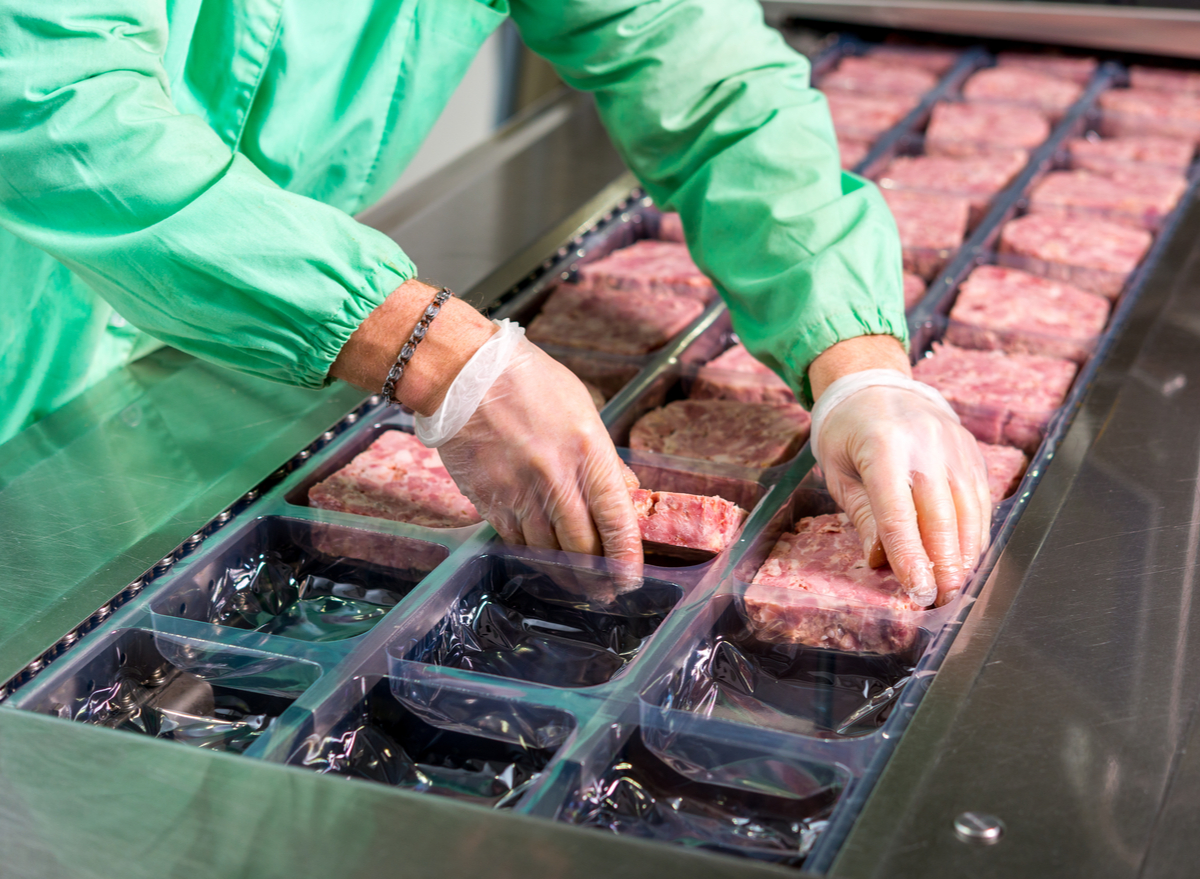
Animal activists often proclaim that “meat is murder.” A similar phrase, however, rings true as well: Meat is money.
Regardless of your personal stance on animal rights, there’s no denying that meat is big business—and business is good. In the United States alone, meat packing and processing generates roughly $150 billion in revenue annually.
That kind of money is hard to imagine (picture Scrooge McDuck’s vault), yet somehow meat revenues are projected to increase moving forward. By 2027, annual revenues are predicted to reach around $177 billion.
While the astounding scope of these numbers is enough to give pause, the fact that the meat industry is a perpetual golden goose shouldn’t be all that surprising. After all, Americans love meat. Per the USDA, the average U.S. citizen consumed 144 pounds of meat in 2017. That’s a lot of burgers and hot dogs! Notably, red meat in particular (lamb, beef, pork, etc) accounted for 51% of those pounds.
The fact that red meat makes up such a large portion of so many American diets is especially worrying. Why? Red meat is associated with a laundry list of health conditions including heart disease, cancer, diabetes, and even a higher mortality risk in general.
More specifically, this study from the American Heart Association reports that eating more red meat and processed meats like sausage and bacon may increase stroke risk. Similarly, this research project published in JAMA Internal Medicine links red and processed meat consumption with greater heart disease and death risk.
If meat is so detrimental to our health, why do so many people still eat it day in and day out? It’s a valid question, as one study published in Appetite even found that a decent portion of self-proclaimed meat-eaters (7%) reacted with a “fairly strong disgust response” when shown images of various meat dishes like roasted chicken or bacon.
If you’ve been on the fence about cutting back on meat, keep in mind that there are plenty of reasons to go for a greener diet besides just nutrition. The meat industry may turn a big profit, but it’s also the definition of problematic. Here are five truths about the meat industry that will make you lose your appetite.
And don’t miss 10 Truths About the Dairy Industry That Will Make You Lose Your Appetite.
Salmonella in raw chicken is evading detection
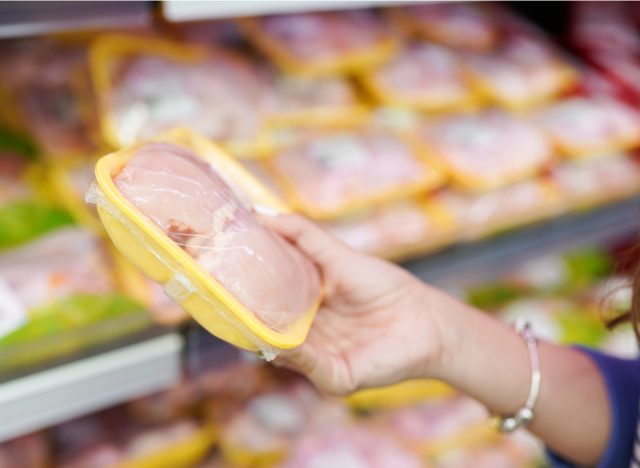
Did you know that roughly one in every 25 packages of raw chicken sitting on grocery store shelves are contaminated with salmonella?
That statistic alone is probably enough to consider eating less chicken, but recent scientific findings just released in Applied and Environmental Microbiology reports that current methods of detecting salmonella in chicken before hitting grocery shelves often fail to identify high-risk salmonella strains known to cause illness in humans.
Salmonella comes in a variety of strains, referred to as serotypes. Well, the serotypes that are usually detected and neutralized in chicken farms are quite different from the serotypes that are seen in raw processed chicken sold to the public.
“When I first started at the Poultry Diagnostic and Research Center four years ago and met with several different poultry companies, one of the things they said to me was that the salmonella they find on the farms is not the same type of salmonella they find in the processing plant,” says Nikki Shariat, corresponding author of the study and an assistant professor in the University of Georgia College of Veterinary Medicine, in a university release.
Prof. Shariat and her team hypothesized that these “other” strains of salmonella were present on chicken farms all along, just evading detection in the first place. Sure enough, using a complex new DNA detection method developed by Prof. Shariat herself, the research team (in collaboration with the Georgia Poultry Lab Network) noted low levels of numerous other salmonella serotypes in live bird samples that had gone unnoticed.
The good news is that these discoveries can help better inform both chicken farms and processing plants on how to detect more strains of salmonella.
“Over recent years, the poultry industry has made great strides in reducing salmonella in their processing facilities,” Prof. Shariat concludes. “There is no silver bullet that can eliminate salmonella in the processing plant or during pre-harvest in the birds.”
The rainforest is dying to feed humanity’s meat habit
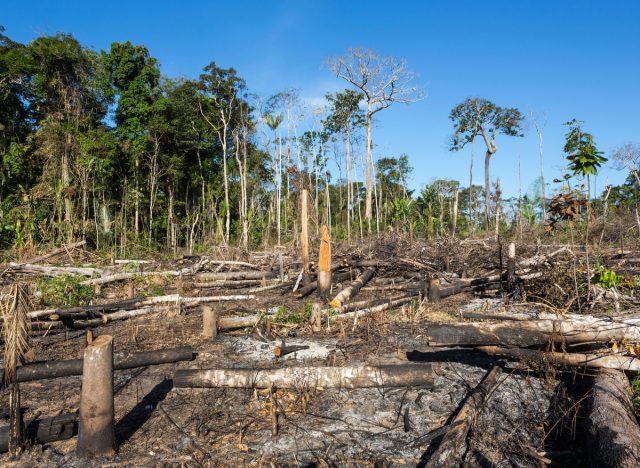
The meat we eat, of course, comes from livestock. Well, those animals need land to live on and crops to eat, which means space has to be made somewhere. Enter deforestation. The meat industry as a whole is a major contributor to global deforestation.
According to one report from the World Resources Institute, beef production contributes to global deforestation five times more than any other commodity. For example, let’s take major meat producer JBS for example. Advocacy group Mighty Earth tells us that JBS is responsible for over 105,000 acres of deforestation in Brazil (both the Amazon rainforest and the Cerrado. That’s half the size of NYC.
Cargill, another of the biggest meat producers in the world, is responsible for even more Brazilian deforestation (over 151,000 acres). About a year ago, Mighty Earth even put together an online campaign aimed at spreading awareness about rainforest-produced meat sold in U.S. grocers. The image for the campaign was a jaguar speared by a fork.
“It’s a symbol that, if you eat chicken, without knowing it, you are eating a jaguar because their habitat has been destroyed to produce the soybeans that the poultry is being fed,” Nico Muzi, former Europe director of Mighty Earth, told The Washington Post.
The meat industry is blocking climate action
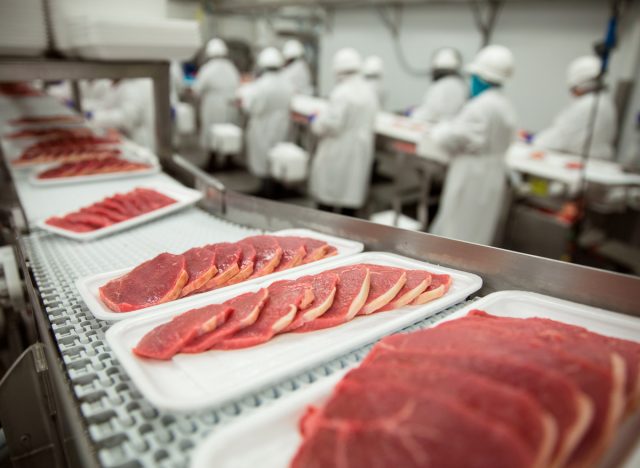
Speaking of our planet, deforestation isn’t the only avenue by which major meat producers have wronged Earth. A bombshell report released last year by New York University found that 35 of the planet’s biggest meat and dairy producers are dragging their collective feet when it comes to addressing climate change.
“If you look at the individual companies, and how they claim to be working on climate change, their mitigation efforts focus on carbon dioxide, which is a small fraction of their emission across their supply chains,” comments study co-author Sonali McDermid, an associate professor in NYU’s Department of Environmental Studies, in a university release. “They should be talking about methane, which is the more potent greenhouse gas, especially when it comes to cows.”
Moreover, Tyson and National Beef Packing (two of the largest meat companies in the U.S.) have actively contributed to research that brushes aside or minimizes the impact of animal agriculture on climate change.
“The largest meat and dairy companies in the U.S. have spent a considerable amount of time, money, and effort into downplaying the link between animal agriculture and climate change, and into fighting climate policy more generally” adds study co-author Oliver Lazarus, an NYU graduate student at the time the study was published in 2021.
At the end of the day, perhaps the best way to illustrate a climate story like this is through dollars and cents: NYU’s research tells us that groups backed by big meat have spent roughly $200 million on lobbying efforts aimed at impeding climate legislation that may impact meat production since 2000.
“U.S. beef and dairy companies appear to act collectively in ways similar to the fossil fuel industry, which built an extensive climate change countermovement,” the study concludes.
Hot dog ingredients are the stuff of nightmares
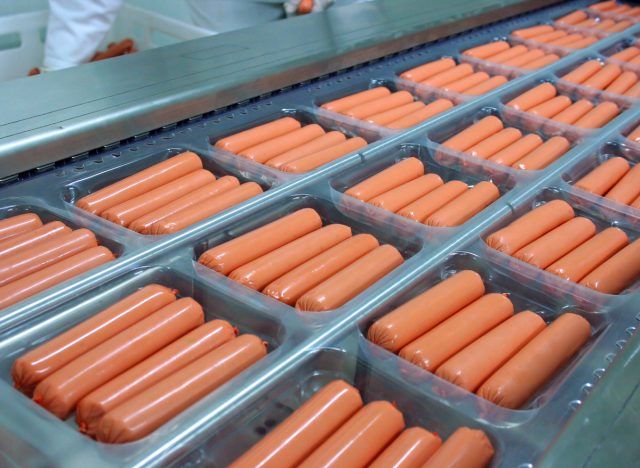
Nothing exemplifies America’s meat obsession better than the hot dog. Hot dogs are synonymous with summer, BBQs, and baseball—what’s not to like? Well, a whole lot actually.
To start, while hot dogs are definitely made with real meat, the quality of that meat may shock you. The main meat ingredient in hot dogs is something called “trimmings.” Per the National Hot Dog and Sausage Council, trimmings are the pieces of meat “most commonly thrown away from steaks or roasts.” Basically, hot dogs are made up of the meat no one else wants. Yum!
Diving a bit further into the appetite-killing specifics, trimmings may refer to low-grade muscle tissue, animal skin, head meat (yes, that is exactly what it sounds like), and feet meat.
According to the Humane League, hot dogs are also known to contain natural sheep casing from lamb intestines, something called “variety meat,” MSG, and nitrates that have been linked to cancer.
And those are just the usual ingredients! Back in 2015, Time Magazine submitted a Freedom of Information Act request to the U.S. Department of Agriculture inquiring about the strangest foreign objects consumers have reported finding in a hot dog. Here are just a few items people have found in their hot dogs: the tip of a razor blade, a needle, a jagged piece of bone, glass, and a dime.
Big meat put profit over people during the pandemic
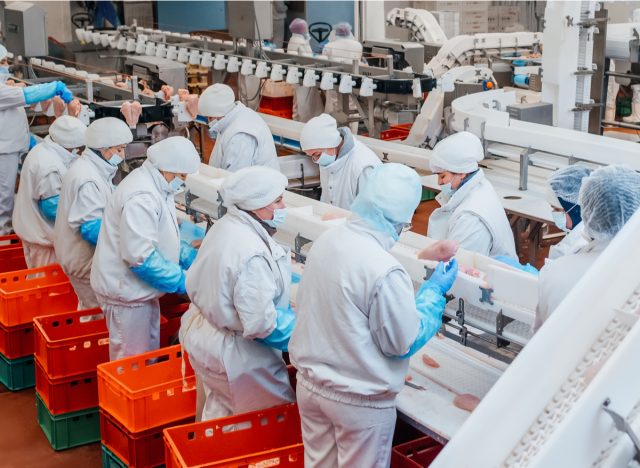
The COVID-19 pandemic was a shock to the entire world in March 2020.
As we all did our best to protect ourselves and our loved ones from SARS-CoV-2, recently released findings by the House of Representatives’ Select Subcommittee on the Coronavirus Crisis reports the nation’s top five meat producers (Tyson, Cargill, JBS, Smithfield, & National Beef Packing) did everything they could to prioritize their own profits over the safety and health of their employees.
Even worse, the meat industry had help from the highest levels of the government at the time.
The SSCC report’s executive summary states: “…despite awareness of the high risks of coronavirus spread in their plants, meatpacking companies engaged in a concerted effort with Trump Administration political officials to insulate themselves from coronavirus-related oversight, to force workers to continue working in dangerous conditions, and to shield themselves from legal liability for any resulting worker illness or death.”
For instance, the report tells us that in April 2020 the CEOs of Tyson, JBS, Smithfield, and others held a conference call with then-Secretary of Agriculture Sonny Perdue. During the call the CEOs asked Secretary Perdue to “elevate the need for messaging about the importance of our workforce staying at work to the POTUS or VP level” and stressed the importance of letting the nation’s meat workers know that “being afraid of COVID-19 is not a reason to quit your job and you are not eligible for unemployment compensation if you do.”
Another phone call with Secretary Perdue on April 3rd, 2020 saw meatpacking CEOs argue that their employees “should not be entitled to unemployment benefits if they are otherwise able to work through the pandemic” and warned against “creating an incentive, much less a path, for food industry workers to choose unemployment over producing food.”
Over 59,000 infections and at least 269 deaths were recorded among workers at those five companies in 2020 alone.
A previous version of this article was originally published on June 16, 2022.









